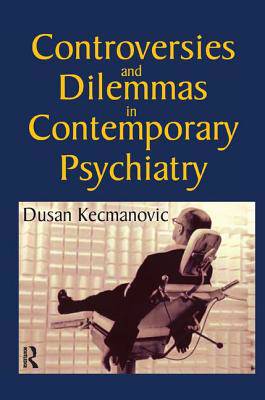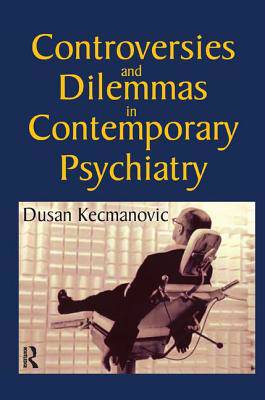
- Retrait gratuit dans votre magasin Club
- 7.000.000 titres dans notre catalogue
- Payer en toute sécurité
- Toujours un magasin près de chez vous
- Retrait gratuit dans votre magasin Club
- 7.000.0000 titres dans notre catalogue
- Payer en toute sécurité
- Toujours un magasin près de chez vous
Description
The controversies and dilemmas in contemporary psychiatry are so numerous and serious that they, to a great extent, define psychiatry. Yet most psychiatrists pay little attention to the field's controversies, maintaining that talking about controversies tarnishes psychiatry's reputation and them along with it. Critics of psychiatry use these controversies and dilemmas, along with psychiatrists' unwillingness to discuss them, to undermine psychiatry. They question the existence of mental disorder and the purpose of psychiatric therapy. Kecmanovic undertakes a major effort of resolving with science, not ideology, such dilemmas.
Although psychiatrists give no thought to the mind-body relationship, their attitude towards this relationship determines their approach to the mentally ill, their understanding of the origin and nature of the mental disorder, and the therapy they think has priority. Sometimes psychiatrists implicitly or explicitly cite a specific school of philosophy in order to find conceptual support for their particular practice. As a result psychiatrists do not speak the same language about the same issues. Kecmanovic suggests that there can be no dialogue without common language; opposing views cannot converge without dialogue.
The behavior of the mentally ill is socially jarring. This is a major reason why the mentally ill are considered to be a menace. They threaten prevailing manners of communicating, expressing one's thoughts and feelings, and the existing meaning of symbols in a given environment. Deviance of a person with a mental disorder is specific; socially perceived as incomprehensible, irrational, and unpredictable. What is common to all reactions to the disruptive nature of a mental disorder is the desire to be protected from those with illness; in other words, to put them under control and supervision.
Spécifications
Parties prenantes
- Auteur(s) :
- Editeur:
Contenu
- Nombre de pages :
- 331
- Langue:
- Anglais
Caractéristiques
- EAN:
- 9781138508606
- Date de parution :
- 28-09-17
- Format:
- Livre broché
- Format numérique:
- Trade paperback (VS)
- Dimensions :
- 152 mm x 229 mm
- Poids :
- 452 g

Les avis
Nous publions uniquement les avis qui respectent les conditions requises. Consultez nos conditions pour les avis.






